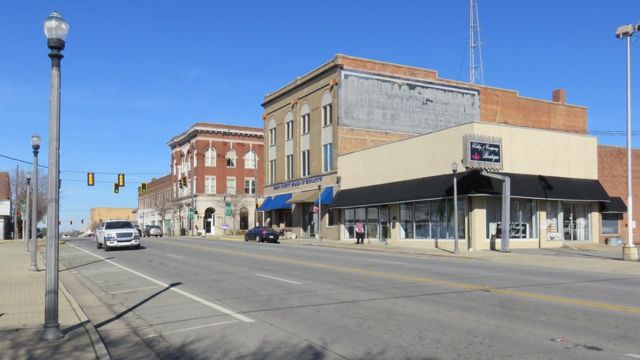Georgia boasts a rich tapestry of history, culture, and natural splendor, yet grapples with various challenges, including poverty, inequality, and unemployment. This blog post delves into Cordele, the poorest town in Georgia, exploring the causes and consequences of its poverty while suggesting potential solutions and opportunities for a brighter future.
Introducing Cordele
Nestled in the heart of South Georgia, Cordele, with its population of approximately 10,000, stands as the county seat of Crisp County. This self-proclaimed “Watermelon Capital of the World” exudes Southern charm, captivating landscapes, and a unique fusion of rural and urban life. However, beneath its picturesque exterior, Cordele contends with the harsh reality of poverty.
Understanding Cordele’s Economic Struggles
Cordele’s economic struggles manifest in stark statistics. According to the U.S. Census Bureau, the town’s median household income languishes at $27,922—less than half of the national average. With a poverty rate of 39.5%, three times higher than the national average, and nearly half of its children below the poverty line, Cordele faces significant challenges. Basic necessities such as food, healthcare, education, and housing are often luxuries for many families.
Unpacking the Causes of Cordele’s Poverty
Cordele’s economic downturn results from a convergence of factors. The town’s overreliance on agriculture, particularly watermelon production, leaves its economy susceptible to seasonal fluctuations, weather, pests, and market shifts. The inability to attract diverse industries compounds this issue. Additionally, educational shortcomings hinder residents, with only 69.9% of adults holding a high school diploma or higher, limiting opportunities in an evolving job market. Insufficient infrastructure and services further mar Cordele’s appeal, with crime rates high, healthcare access low, and essential amenities lacking.
The Toll of Poverty on Cordele
The consequences of poverty in Cordele reverberate across health, education, and social spheres. Poor health outcomes plague residents, as poverty correlates with increased rates of chronic and infectious diseases, exacerbated by limited healthcare access. Educational prospects diminish, impacting academic performance and achievement. Socially, poverty breeds crime, substance abuse, and family breakdown, eroding community cohesion.
Charting a Course for Cordele’s Future
Despite these challenges, Cordele can reshape its destiny. A multifaceted approach includes economic diversification, educational improvements, and infrastructure upgrades.
Economic Development: Cordele’s path to prosperity involves diversifying its economy, attracting new industries, and fostering entrepreneurship and innovation. Leveraging its strategic location and cultural heritage can create a robust economic foundation.
Education and Skills: Investing in education from early childhood to adulthood, coupled with workforce development and lifelong learning initiatives, can equip residents with the skills needed for a competitive labor market.
Infrastructure and Services: Upgrading transportation, communication, healthcare, and public safety systems will enhance livability. Developing recreational, cultural, and environmental assets will contribute to the town’s appeal.
In Conclusion
While Cordele may currently hold the title of Georgia’s poorest town, it possesses the potential for transformation. By embracing economic diversity, prioritizing education, and modernizing infrastructure, Cordele can emerge as a beacon of prosperity—capturing not only the essence of the “Watermelon Capital” but also a town marked by affluence, health, education, and happiness.

